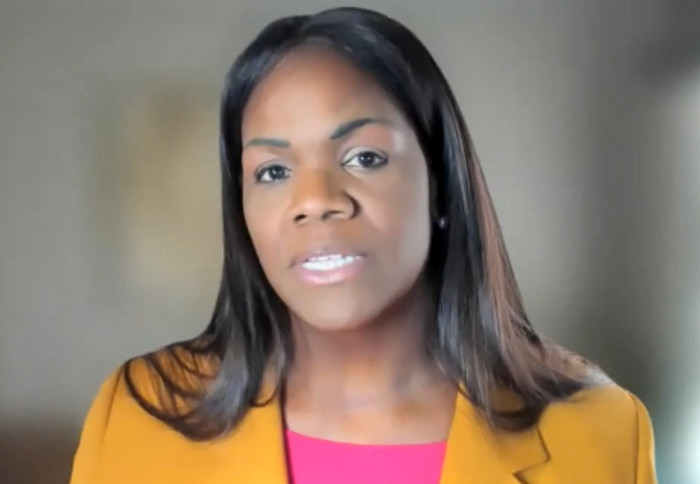
Dame Vivian Hunt, a Senior Partner at McKinsey & Co was a keynote speaker at the Business School's sixth annual conference
Global S&T Development Trend Analysis Platform of Resources and Environment
| People and societal concerns should come before profit, say industry leaders | |
| admin | |
| 2021-04-29 | |
| 发布年 | 2021 |
| 语种 | 英语 |
| 国家 | 英国 |
| 领域 | 资源环境 |
| 正文(英文) | 
Dame Vivian Hunt, a Senior Partner at McKinsey & Co was a keynote speaker at the Business School's sixth annual conference 
Businesses must demonstrate they share society’s concerns and play their part in resolving them, experts agreed at a conference. Speakers and panelists from academia and the business world gathered online for Imperial College Business School's sixth annual conference: Leading Responsibly in a World Moving through Crisis. Industry leaders and researchers discussed how businesses can prepare to lead in a post-pandemic world, as well as lead responsibly through an ongoing crisis. The topics covered included being a nimble and principled leader, the role of business in dismantling systemic racism and social inequality and leading responsibly in digitally transformed organisations. Watch the video of the full conference below. The first keynote speech was delivered by John Allan, Vice President of the CBI and Chairman at Tesco, who is also the Chair of Imperial College London’s Council. He outlined the impact of Covid-19 on Tesco and discussed how the supermarket chain aligned its response with its existing brand values as well as ensuring the safety of staff and customers. This, in addition to providing much-needed reassurance in the early days of the pandemic, resulted in an increased level of trust in the Tesco brand. “Behaving responsibly is simply the right thing to and doing the right thing, in the right way really matters,” he said. He also mentioned how the renewed sense of camaraderie and collaboration among staff as we emerge from the crisis ensured that Tesco could play its part in tackling longer-term societal challenges, such as climate change, poverty, racism and inequality. Diverse collaborationSir Andrew Witty, the CEO of United Health Group, reflected on the key role the science community played in responding to the pandemic. While acknowledging the missteps made in some policy decision making, he commended the “tremendous collaborative spirit” between the science and health community which presented real opportunities to be built upon in order to tackle future crises. He also advised leaders to show empathy in times of crisis as well as pragmatism and calm. Neil Ferguson, Professor of Mathematical Biology at Imperial, highlighted the need for more diversity in the scientific community and government, particularly from Black, Asian and Minority Ethnic communities in order to address the needs of a wider set of stakeholders. He noted the importance of having people around the table reflecting the communities of all those who would be affected by any policy decision. Stakeholder capitalismIn the final keynote speech, Dame Vivian Hunt, Senior Partner at McKinsey & Co called for organisations to engage in stakeholder capitalism as a framework for leading responsibly. Citing several successful business examples, she said, “It’s a good thing in and of itself to think of more than financial returns, although these are essential. But if done well, stakeholder capitalism can build competitive advantage.” She also spoke of the importance of listening to others, and of learning from mistakes and following up with good policy and practice. "Times of crisis induce change, which means that the distressing impact of Covid offers an opportunity to transform our practices, approach and outlook, towards this more responsible future." Professor Francisco Veloso Dean of Imperial College Business School In a series of panel discussions, delegates heard from speakers across different business sectors, from the creative arts to large corporations. The idea of putting people and societal concerns before profit was a common theme in each session. Lise Lingo, former CEO, UN Global Impact, advocated for activism, saying that “the problems in society were too large for business not to play a role”. Naveen Sultan, Chairman Institutional Clients Group at Citi said leaders “should focus on purpose, engagement, fairness and inclusiveness.” Delegates were later invited to join roundtable discussions on each of the four topics from the earlier panel sessions. During the discussions, delegates shared their experiences of leadership and the pros and cons of remote working while trying to maintain team cohesion and inclusiveness. Reflecting on the conference, Professor Francisco Veloso, Dean of Imperial College Business Schoolsaid: “It’s clear that responsible leadership and business success can co-exist and reinforce each other. But there are challenges and an important journey to get to that point. As business leaders, we have a stake in society and a responsibility to drive change within our organisations to impact society for the better. Times of crisis induce change, which means that the distressing impact of Covid offers an opportunity to transform our practices, approach and outlook, towards this more responsible future. It depends on all of us to achieve it.”
|
| URL | 查看原文 |
| 来源平台 | Imperial College London |
| 文献类型 | 新闻 |
| 条目标识符 | http://119.78.100.173/C666/handle/2XK7JSWQ/324904 |
| 专题 | 资源环境科学 |
| 推荐引用方式 GB/T 7714 | admin. People and societal concerns should come before profit, say industry leaders. 2021. |
| 条目包含的文件 | 条目无相关文件。 | |||||
| 个性服务 |
| 推荐该条目 |
| 保存到收藏夹 |
| 查看访问统计 |
| 导出为Endnote文件 |
| 谷歌学术 |
| 谷歌学术中相似的文章 |
| [admin]的文章 |
| 百度学术 |
| 百度学术中相似的文章 |
| [admin]的文章 |
| 必应学术 |
| 必应学术中相似的文章 |
| [admin]的文章 |
| 相关权益政策 |
| 暂无数据 |
| 收藏/分享 |
除非特别说明,本系统中所有内容都受版权保护,并保留所有权利。
修改评论